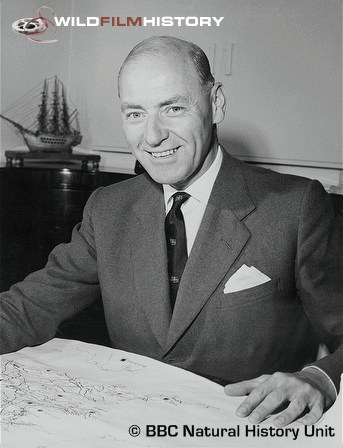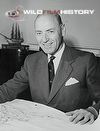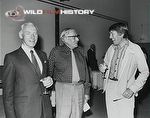Frank Gillard

The driving force behind much of the West region’s radio and television success, Frank Gillard spent a long and successful career in the broadcasting industry. Originally a schoolmaster, he began to contribute items to BBC West Region radio in 1936. After five years working as a freelance he was taken on permanently, rapidly becoming one of the most familiar radio voices throughout the War.
Beginning work as a war correspondent, Frank reported from France, North Africa and Italy, arriving back in London to cover the D-day landings. On his return, Frank became head of West Regions Programmes, and decided to build upon the West Region’s local strengths of gardening, archaeology and natural history. He appointed his old friend Desmond Hawkins in 1945 to help implement his plans, and successfully lobbied for extra regional airtime.
Continuing to strengthen the region’s identity, Frank worked hard at getting West programmes onto national BBC services, striking huge success with the classic radio broadcast Any Questions? A brief transfer to London predated his appointment as Controller of the West Region and, embracing the new medium of television, he again set to promote the region’s work.
Through Frank’s dedication and perseverance, the West held an almost monopoly in BBC antiques and wildlife programming, with the Natural History Unit formally being established in Bristol in 1957. 1961 saw Frank appointed CBE and two years later he moved to London, having just been made managing director of BBC radio. With the introduction of FM broadcasting, the BBC was free to add an extra service and update their trio of Home, Light and Third. Frank came up with the ideal solution - radios 1,2,3,4, and by greatly stretching his budget, encouraged the formation of BBC local stations.
Frank officially retired in 1970, but then began work in the U.S. as a ‘consultant’ – scoring a huge success by suggesting the broadcast of classic British serials. Introduced by Alistair Cooke, and released under the name of Masterpiece Theatre, the series was hugely popular and rapidly became a national institution. Back in Britain, Frank began a new career, narrating a variety of television documentaries covering everything from war time commanders to hospital dramas.
Frank died aged 89, on 21st October 1998.





